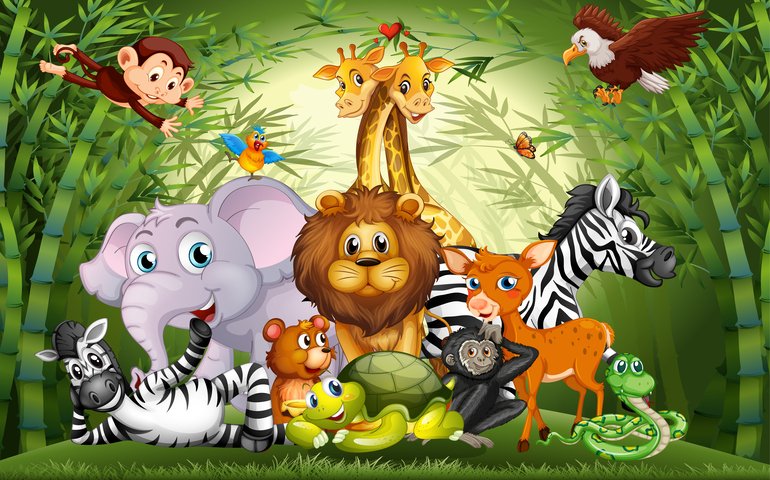The Zoology course offers a deep dive into the fascinating world of animals, covering behaviors, diversity, and well-being. With a focus on genetics, breeding, vertebrate and invertebrate zoology, participants gain insights into animal conservation, anatomy, physiology, and ecological roles. The course also addresses animal diseases, prevention, treatment, and care practices.
Overview
Zoology is a comprehensive course that delves into the fascinating world of animals, their behaviors, diversity, and health. This course provides a solid foundation in the field of zoology, covering a wide range of topics from genetics and breeding to vertebrate and invertebrate zoology. Participants will gain an understanding of animal behaviors and the vast diversity of life forms found in the animal kingdom. They will explore the intricacies of animal genetics and learn about the principles of breeding and its applications in animal conservation and husbandry. The course also focuses on the study of vertebrate and invertebrate zoology, providing insights into the characteristics, classifications, and ecological roles of different animal groups. Participants will learn about the anatomical structures, physiological processes, and evolutionary adaptations of vertebrates and invertebrates. Animal diseases and health care are essential aspects of zoology, and participants will explore common animal diseases, their causes, prevention, and treatment. They will gain insights into animal health care practices, including diagnostics, nutrition, and welfare. By the end of this course, participants will have a comprehensive understanding of zoology and its applications. They will be equipped with the knowledge and skills needed to study, research, and contribute to the field of zoology. Whether you are a biology student, aspiring zoologist, or interested in animal science, this course will provide valuable insights and open doors to a wide range of career opportunities in the fascinating world of animals.What Will You Learn?
- The fundamentals of zoology and its importance in understanding the animal kingdom.
- The diverse behaviors exhibited by animals and the various factors that influence their behavior.
- The incredible variety of life forms found within the animal kingdom, including their classification and characteristics.
- The principles of genetics and breeding in animals, and their impact on animal populations and traits.
- The study of vertebrate animals, including their anatomy, physiology, and evolutionary relationships.
- The study of invertebrate animals, including their classification, adaptations, and ecological roles.
- The causes, symptoms, and treatments of various animal diseases, and the impact of diseases on animal populations and ecosystems.
- The principles and practices of animal health care, including preventive measures, diagnostic techniques, and treatment methods.
Who Should Take The Course
- Biology students seeking a comprehensive understanding of the animal kingdom.
- Veterinary students looking to enhance their knowledge of animal biology, behavior, diseases, and health care.
- Wildlife enthusiasts passionate about animal behavior, diversity, and conservation.
- Animal care professionals, such as zookeepers, wildlife rehabilitators, and animal shelter staff.
- Educators in biology, life sciences, or related fields aiming to enrich their curriculum.
- Researchers in animal-related fields seeking a solid foundation in zoology.
Requirements
- There are no specific prerequisites for taking the course "Zoology." However, a basic understanding of biology concepts would be beneficial.
- Access to a computer or device with internet connectivity is required to access the course materials and resources.
- A strong interest in animals and a curiosity to learn about their biology, behavior, and health is recommended.
Course Curriculum
-
- What is Zoology 00:08:00
- The History of Zoology 00:07:00
- Classification of Animals 00:06:00
- Zoological Research Methods 00:07:00
-
- Invertebrates: An Overview 00:07:00
- Vertebrates: Fish and Amphibians 00:06:00
- Vertebrates: Reptiles and Birds 00:07:00
- Vertebrates: Mammals 00:07:00
- Endangered Species and Conservation 00:06:00
- Circulatory and Respiratory Systems 00:08:00
- Digestive and Excretory Systems 00:12:00
- Nervous and Sensory Systems 00:08:00
- Reproductive and Endocrine Systems 00:06:00
- Ecosystems and Biodiversity 00:08:00
- Interactions Among Species 00:08:00
- Human Impact on Wildlife 00:12:00
- Conservation Biology and Ethical Considerations 00:06:00
- Exam of Zoology Level 2 00:50:00
Course Reviews
5
- 5 stars1
- 4 stars0
- 3 stars0
- 2 stars0
- 1 stars0
New Courses
Blogs
Jul'23
ADHD Training for Teachers: Empowering Educators to Support Students with Attention Challenges
Relationships may be severely harmed by narcissistic behaviours, leaving emotional scars and...
Jul'23
Narcissistic Behaviour and Relationships: Understanding the Impact and Finding Healing
Relationships may be severely harmed by narcissistic behaviours, leaving emotional...
Jul'23
Childhood Trauma in Adults
What Is Childhood Trauma? Childhood trauma refers to distressing or...
Jul'23
Creating A Social Media Strategy
Set Clear Objectives:The first step in developing a successful social media...
Jul'23
Neuro-Linguistic Programming Techniques
Neuro-Linguistic Programming (NLP) is a fascinating and widely acclaimed approach...
Jul'23
Acceptance and Commitment Therapy in the UK
What is acceptance and commitment therapy? Acceptance and Commitment Therapy...






Good course recommended